Australia/08 septiembre 2016/Autora: Mónica Parga/ Fuente: Univisión
«¿Cómo puedo hacer que pare de llorar?» «¿Por qué tarda tanto en terminar de comer? ¿Me pueden ayudar?» Los RealCare Babies causan tantos quebraderos de cabeza entre los jóvenes que los vídeos en YouTube sobre cómo cuidarlos son muy populares. El tutorial titulado Trampas para Real Care Baby: Consejos y Trucos tiene más de 200,000 visualizaciones.
Estos inquietantes robots que imitan el comportamiento de los bebés están basados en la idea de que si uno experimenta el esfuerzo que supone hacerse cargo de un bebé se tomarán más precauciones para evitar embarazos no deseados. En algunas escuelas de secundaria, los estudiantes tienen que superar el reto de cuidar de un infante virtual como proyecto de clase y afrontar la realidad de tener un hijo.
Sin embargo, un nuevo estudio compartido por la revista médica The Lancet afirma que el efecto no es el esperado: las jóvenes que participaron en un programa para aprender a cuidar estos muñecos fueron más propensas a quedarse embarazadas que las que no lo hicieron.
El muñeco llora cuando tiene hambre, necesita que le cambien el pañal o es agitado bruscamente, y muestra agrado cuando se han satisfecho sus necesidades. En su interior cuenta con un detector que registra y reporta cada actividad, la temperatura exterior, el tiempo que pasa sentado en la silla del auto, la sujeción de la cabeza, la posición, y cualquier movimiento fuerte que en un bebé real podría provocarle el Shaken Baby Syndrome.
Actualmente, estos simuladores se utilizan en escuelas de unos 89 países, incluyendo Estados Unidos, en programas de formación de profesionales de la salud y la educación, para entrenar a futuros padres, y es parte de algunos programas de educación sexual.
Cada logro o fallo se suma a una puntuación que evalúa si se ha actuado bien o no, y queda registrado en la ficha del estudiante. Para evitar trampas y que otra persona se haga cargo del simulador, el usuario tiene que llevar una pulsera que va conectada de forma inalámbrica al robot. El aparato ofrece «lecciones inolvidables», según afirman en la web de la compañía. Se puede adquirir a través de la web de la empresa y otras tiendas, y en eBay se venden de segunda mano por alrededor de 150 dólares cada uno (hay packs con precios más reducidos). Su nombre original era Baby Think It Twice (‘Baby piénsalo dos veces’).
“Son las pocas chicas que sacan una alta puntuación de las que te tienes que preocupar. En mi experiencia, son las que terminan y se quedan embarazadas de verdad. Accidentalmente, les has enseñado que pueden cuidar de un bebé», señala Janette Collins, una consejera juvenil basada en Londres, para Financial Times.
En el estudio que ha causado la polémica, se siguieron a 1267 chicas de entre 13 y 15 años que realizaron el programa Virtual Parenting en Australia y a otras 1567 que no lo lo hicieron. Los académicos midieron su progreso hasta que cumplieron 20 años, momento en el que compararon los índices de embarazo y vieron que las que habían utilizado el robot registraban cifras mayores. Realityworks, la empresa que creó estos simuladores, ha criticado los resultados diciendo que el programa australiano no seguía las mismas exigencias de calidad que el suyo y que por tanto no se podía comparar su eficiencia.
Las exigencias del robot suelen pillar desprevenidos a estos adolescentes, y recurren a tutoriales de Internet para superar la tarea.
En uno de estos videos, una adolescente comparte varios secretos para evitar tener que dedicarle tanto tiempo al muñeco, como por ejemplo desactivándolo con un botón que tiene escondido o aprendiendo a diferenciar los tipos de llanto, y en otro vídeo se explica cómo hacer un pacifier magnético para controlar el lloro. Una categoría muy extendida son los que relatan el día a día con el robot para mostrar su evolución, como si de un diario online se tratara.
Los comentarios de los videos son una pequeña muestra de las experiencias que viven los estudiantes con el robot: «Sufrí una crisis nerviosa el último día que tuve esa cosa, lloró 15 veces en 10 minutos. Tuve que ir a abrazar a mi hermana y me eché a llorar», dice una. Otros testimonios no son tan negativos: «Es un simulador de bebé, no un juguete, se supone que debe enseñarte cómo ocuparte de un bebé y lo duro que es ser madre. Yo tuve un RealCare Baby antes de que naciera mi pequeña Anna, y debo decir que realmente me ayudó a preparme».
En Google, la búsqueda «real care baby cheats» es de las más populares entre las relacionadas con el dispositivo.
Una de las críticas que se están haciendo a este tipo de programas a raíz del estudio es que no se cuente con la participación de los adolescentes varones, como sucedió en el caso de la iniciativa australiana. En otras modalidades, como en Estados Unidos, sí que se involucra a los chicos para que ellos también sean conscientes de su responsabilidad. El Gobierno ha financiado recientemente varios estudios y programas dirigidos especialmente a jóvenes varones, señalando que los chicos normalmente suelen dejarse fuera de la ecuación a la hora de hablar de este tema.
El porcentaje de embarazos adolescentes en Estados Unidos es sustancialmente mayor que en otros países occidentales industrializados, aunque las cifras están descendiendo: en 2014 se registró una bajada del 9% respecto al año anterior. Las razones son difíciles de determinar según afirma Centers for Disease Control and Prevention, un organismo del gobierno, aunque señalan el mayor acceso a los anticonceptivos y el retraso o reducción de las relaciones sexuales como posibles causas.
Sólo un 50% de las madres adolescentes logra el título de secundaria antes de llegar a los 22 años, mientras que el resto de alumnas se gradúan a tiempo en un 90%. Las adolescentes que viven en un entorno socioeconómico con menos recursos tienen más probabilidades de quedarse embarazadas, sobre todo en el caso de las jóvenes en centros de acogida, donde la probabilidad es del doble.
Junto con los programas de prevención, el gobierno destaca a los padres y adultos de confianza como la clave para educar a los jóvenes en este ámbito.
«¿Cómo puedo hacer que pare de llorar?» «¿Por qué tarda tanto en terminar de comer? ¿Me pueden ayudar?» Los RealCare Babies causan tantos quebraderos de cabeza entre los jóvenes que los vídeos en YouTube sobre cómo cuidarlos son muy populares. El tutorial titulado Trampas para Real Care Baby: Consejos y Trucos tiene más de 200,000 visualizaciones.
Estos inquietantes robots que imitan el comportamiento de los bebés están basados en la idea de que si uno experimenta el esfuerzo que supone hacerse cargo de un bebé se tomarán más precauciones para evitar embarazos no deseados. En algunas escuelas de secundaria, los estudiantes tienen que superar el reto de cuidar de un infante virtual como proyecto de clase y afrontar la realidad de tener un hijo.
Sin embargo, un nuevo estudio compartido por la revista médica The Lancet afirma que el efecto no es el esperado: las jóvenes que participaron en un programa para aprender a cuidar estos muñecos fueron más propensas a quedarse embarazadas que las que no lo hicieron.
El muñeco llora cuando tiene hambre, necesita que le cambien el pañal o es agitado bruscamente, y muestra agrado cuando se han satisfecho sus necesidades. En su interior cuenta con un detector que registra y reporta cada actividad, la temperatura exterior, el tiempo que pasa sentado en la silla del auto, la sujeción de la cabeza, la posición, y cualquier movimiento fuerte que en un bebé real podría provocarle el Shaken Baby Syndrome.
Actualmente, estos simuladores se utilizan en escuelas de unos 89 países, incluyendo Estados Unidos, en programas de formación de profesionales de la salud y la educación, para entrenar a futuros padres, y es parte de algunos programas de educación sexual.
Cada logro o fallo se suma a una puntuación que evalúa si se ha actuado bien o no, y queda registrado en la ficha del estudiante. Para evitar trampas y que otra persona se haga cargo del simulador, el usuario tiene que llevar una pulsera que va conectada de forma inalámbrica al robot. El aparato ofrece «lecciones inolvidables», según afirman en la web de la compañía. Se puede adquirir a través de la web de la empresa y otras tiendas, y en eBay se venden de segunda mano por alrededor de 150 dólares cada uno (hay packs con precios más reducidos). Su nombre original era Baby Think It Twice (‘Baby piénsalo dos veces’).
“Son las pocas chicas que sacan una alta puntuación de las que te tienes que preocupar. En mi experiencia, son las que terminan y se quedan embarazadas de verdad. Accidentalmente, les has enseñado que pueden cuidar de un bebé», señala Janette Collins, una consejera juvenil basada en Londres, para Financial Times.
En el estudio que ha causado la polémica, se siguieron a 1267 chicas de entre 13 y 15 años que realizaron el programa Virtual Parenting en Australia y a otras 1567 que no lo lo hicieron. Los académicos midieron su progreso hasta que cumplieron 20 años, momento en el que compararon los índices de embarazo y vieron que las que habían utilizado el robot registraban cifras mayores. Realityworks, la empresa que creó estos simuladores, ha criticado los resultados diciendo que el programa australiano no seguía las mismas exigencias de calidad que el suyo y que por tanto no se podía comparar su eficiencia.
Las exigencias del robot suelen pillar desprevenidos a estos adolescentes, y recurren a tutoriales de Internet para superar la tarea.
En uno de estos videos, una adolescente comparte varios secretos para evitar tener que dedicarle tanto tiempo al muñeco, como por ejemplo desactivándolo con un botón que tiene escondido o aprendiendo a diferenciar los tipos de llanto, y en otro vídeo se explica cómo hacer un pacifier magnético para controlar el lloro. Una categoría muy extendida son los que relatan el día a día con el robot para mostrar su evolución, como si de un diario online se tratara.
Los comentarios de los videos son una pequeña muestra de las experiencias que viven los estudiantes con el robot: «Sufrí una crisis nerviosa el último día que tuve esa cosa, lloró 15 veces en 10 minutos. Tuve que ir a abrazar a mi hermana y me eché a llorar», dice una. Otros testimonios no son tan negativos: «Es un simulador de bebé, no un juguete, se supone que debe enseñarte cómo ocuparte de un bebé y lo duro que es ser madre. Yo tuve un RealCare Baby antes de que naciera mi pequeña Anna, y debo decir que realmente me ayudó a preparme».
En Google, la búsqueda «real care baby cheats» es de las más populares entre las relacionadas con el dispositivo.
Una de las críticas que se están haciendo a este tipo de programas a raíz del estudio es que no se cuente con la participación de los adolescentes varones, como sucedió en el caso de la iniciativa australiana. En otras modalidades, como en Estados Unidos, sí que se involucra a los chicos para que ellos también sean conscientes de su responsabilidad. El Gobierno ha financiado recientemente varios estudios y programas dirigidos especialmente a jóvenes varones, señalando que los chicos normalmente suelen dejarse fuera de la ecuación a la hora de hablar de este tema.
El porcentaje de embarazos adolescentes en Estados Unidos es sustancialmente mayor que en otros países occidentales industrializados, aunque las cifras están descendiendo: en 2014 se registró una bajada del 9% respecto al año anterior. Las razones son difíciles de determinar según afirma Centers for Disease Control and Prevention, un organismo del gobierno, aunque señalan el mayor acceso a los anticonceptivos y el retraso o reducción de las relaciones sexuales como posibles causas.
Sólo un 50% de las madres adolescentes logra el título de secundaria antes de llegar a los 22 años, mientras que el resto de alumnas se gradúan a tiempo en un 90%. Las adolescentes que viven en un entorno socioeconómico con menos recursos tienen más probabilidades de quedarse embarazadas, sobre todo en el caso de las jóvenes en centros de acogida, donde la probabilidad es del doble.
Junto con los programas de prevención, el gobierno destaca a los padres y adultos de confianza como la clave para educar a los jóvenes en este ámbito.
Fuente:Univisión
Muchas escuelas utilizan estos simuladores para que los jóvenes sean conscientes de lo que supone responsabilizarse de un niño, y así reducir las cifras de embarazos no deseados. Un estudio reciente cuestiona su eficacia.
«¿Cómo puedo hacer que pare de llorar?» «¿Por qué tarda tanto en terminar de comer? ¿Me pueden ayudar?» Los RealCare Babies causan tantos quebraderos de cabeza entre los jóvenes que los vídeos en YouTube sobre cómo cuidarlos son muy populares. El tutorial titulado Trampas para Real Care Baby: Consejos y Trucos tiene más de 200,000 visualizaciones.
Estos inquietantes robots que imitan el comportamiento de los bebés están basados en la idea de que si uno experimenta el esfuerzo que supone hacerse cargo de un bebé se tomarán más precauciones para evitar embarazos no deseados. En algunas escuelas de secundaria, los estudiantes tienen que superar el reto de cuidar de un infante virtual como proyecto de clase y afrontar la realidad de tener un hijo.
Sin embargo, un nuevo estudio compartido por la revista médica The Lancet afirma que el efecto no es el esperado: las jóvenes que participaron en un programa para aprender a cuidar estos muñecos fueron más propensas a quedarse embarazadas que las que no lo hicieron.
El muñeco llora cuando tiene hambre, necesita que le cambien el pañal o es agitado bruscamente, y muestra agrado cuando se han satisfecho sus necesidades. En su interior cuenta con un detector que registra y reporta cada actividad, la temperatura exterior, el tiempo que pasa sentado en la silla del auto, la sujeción de la cabeza, la posición, y cualquier movimiento fuerte que en un bebé real podría provocarle el Shaken Baby Syndrome.
Actualmente, estos simuladores se utilizan en escuelas de unos 89 países, incluyendo Estados Unidos, en programas de formación de profesionales de la salud y la educación, para entrenar a futuros padres, y es parte de algunos programas de educación sexual.
Cada logro o fallo se suma a una puntuación que evalúa si se ha actuado bien o no, y queda registrado en la ficha del estudiante. Para evitar trampas y que otra persona se haga cargo del simulador, el usuario tiene que llevar una pulsera que va conectada de forma inalámbrica al robot. El aparato ofrece «lecciones inolvidables», según afirman en la web de la compañía. Se puede adquirir a través de la web de la empresa y otras tiendas, y en eBay se venden de segunda mano por alrededor de 150 dólares cada uno (hay packs con precios más reducidos). Su nombre original era Baby Think It Twice (‘Baby piénsalo dos veces’).
“Son las pocas chicas que sacan una alta puntuación de las que te tienes que preocupar. En mi experiencia, son las que terminan y se quedan embarazadas de verdad. Accidentalmente, les has enseñado que pueden cuidar de un bebé», señala Janette Collins, una consejera juvenil basada en Londres, para Financial Times.
En el estudio que ha causado la polémica, se siguieron a 1267 chicas de entre 13 y 15 años que realizaron el programa Virtual Parenting en Australia y a otras 1567 que no lo lo hicieron. Los académicos midieron su progreso hasta que cumplieron 20 años, momento en el que compararon los índices de embarazo y vieron que las que habían utilizado el robot registraban cifras mayores. Realityworks, la empresa que creó estos simuladores, ha criticado los resultados diciendo que el programa australiano no seguía las mismas exigencias de calidad que el suyo y que por tanto no se podía comparar su eficiencia.
Las exigencias del robot suelen pillar desprevenidos a estos adolescentes, y recurren a tutoriales de Internet para superar la tarea.
En uno de estos videos, una adolescente comparte varios secretos para evitar tener que dedicarle tanto tiempo al muñeco, como por ejemplo desactivándolo con un botón que tiene escondido o aprendiendo a diferenciar los tipos de llanto, y en otro vídeo se explica cómo hacer un pacifier magnético para controlar el lloro. Una categoría muy extendida son los que relatan el día a día con el robot para mostrar su evolución, como si de un diario online se tratara.
Los comentarios de los videos son una pequeña muestra de las experiencias que viven los estudiantes con el robot: «Sufrí una crisis nerviosa el último día que tuve esa cosa, lloró 15 veces en 10 minutos. Tuve que ir a abrazar a mi hermana y me eché a llorar», dice una. Otros testimonios no son tan negativos: «Es un simulador de bebé, no un juguete, se supone que debe enseñarte cómo ocuparte de un bebé y lo duro que es ser madre. Yo tuve un RealCare Baby antes de que naciera mi pequeña Anna, y debo decir que realmente me ayudó a preparme».
En Google, la búsqueda «real care baby cheats» es de las más populares entre las relacionadas con el dispositivo.
Una de las críticas que se están haciendo a este tipo de programas a raíz del estudio es que no se cuente con la participación de los adolescentes varones, como sucedió en el caso de la iniciativa australiana. En otras modalidades, como en Estados Unidos, sí que se involucra a los chicos para que ellos también sean conscientes de su responsabilidad. El Gobierno ha financiado recientemente varios estudios y programas dirigidos especialmente a jóvenes varones, señalando que los chicos normalmente suelen dejarse fuera de la ecuación a la hora de hablar de este tema.
El porcentaje de embarazos adolescentes en Estados Unidos es sustancialmente mayor que en otros países occidentales industrializados, aunque las cifras están descendiendo: en 2014 se registró una bajada del 9% respecto al año anterior. Las razones son difíciles de determinar según afirma Centers for Disease Control and Prevention, un organismo del gobierno, aunque señalan el mayor acceso a los anticonceptivos y el retraso o reducción de las relaciones sexuales como posibles causas.
Sólo un 50% de las madres adolescentes logra el título de secundaria antes de llegar a los 22 años, mientras que el resto de alumnas se gradúan a tiempo en un 90%. Las adolescentes que viven en un entorno socioeconómico con menos recursos tienen más probabilidades de quedarse embarazadas, sobre todo en el caso de las jóvenes en centros de acogida, donde la probabilidad es del doble.
Junto con los programas de prevención, el gobierno destaca a los padres y adultos de confianza como la clave para educar a los jóvenes en este ámbito.
Fuente:http://www.univision.com/estilo-de-vida/el-fracaso-de-los-bebes-robot-como-anticonceptivo-entre-adolescentes
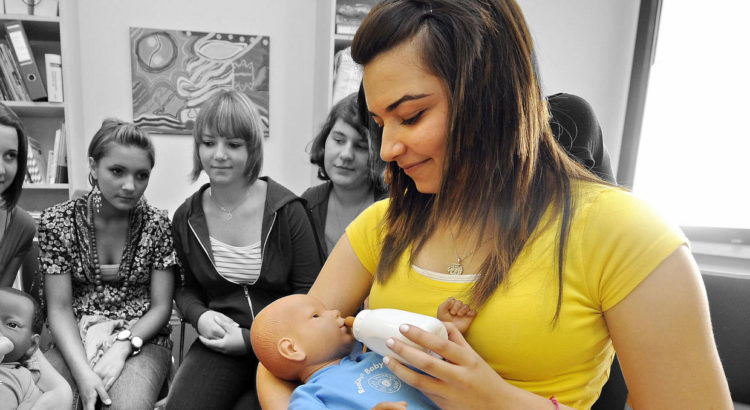
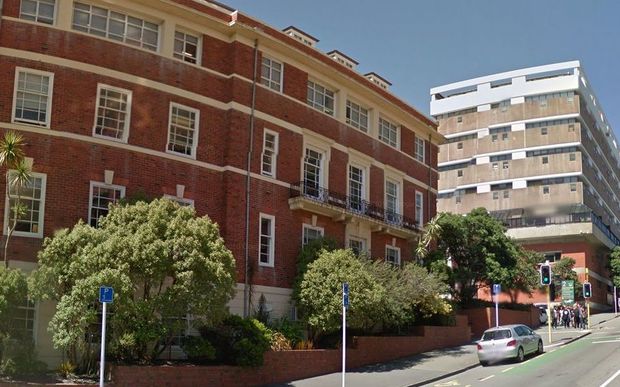


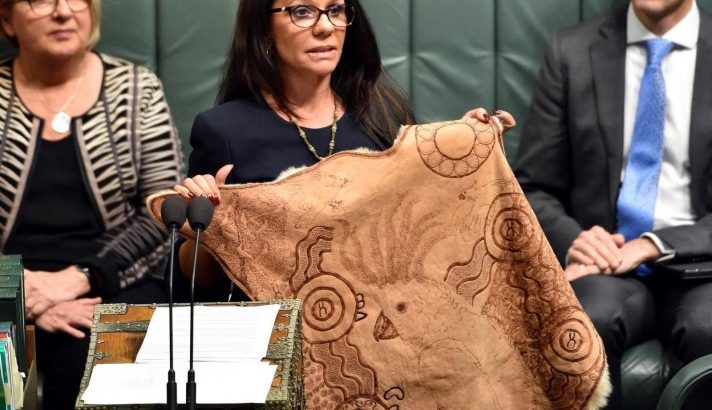
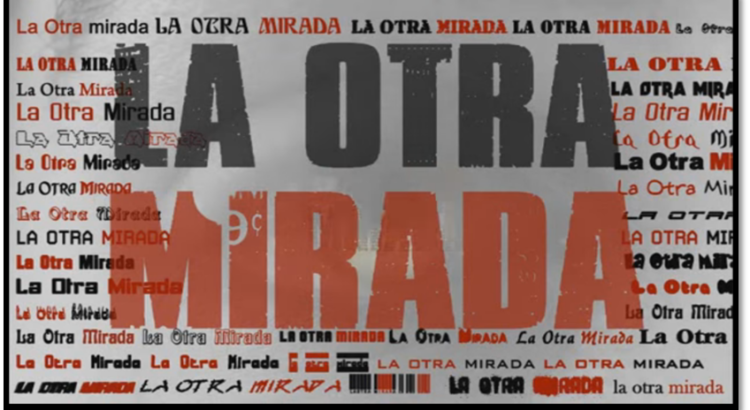
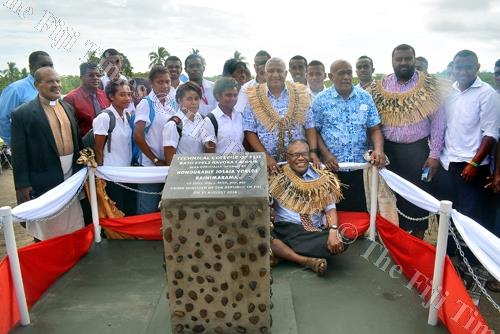




 Users Today : 87
Users Today : 87 Total Users : 35459553
Total Users : 35459553 Views Today : 137
Views Today : 137 Total views : 3417895
Total views : 3417895